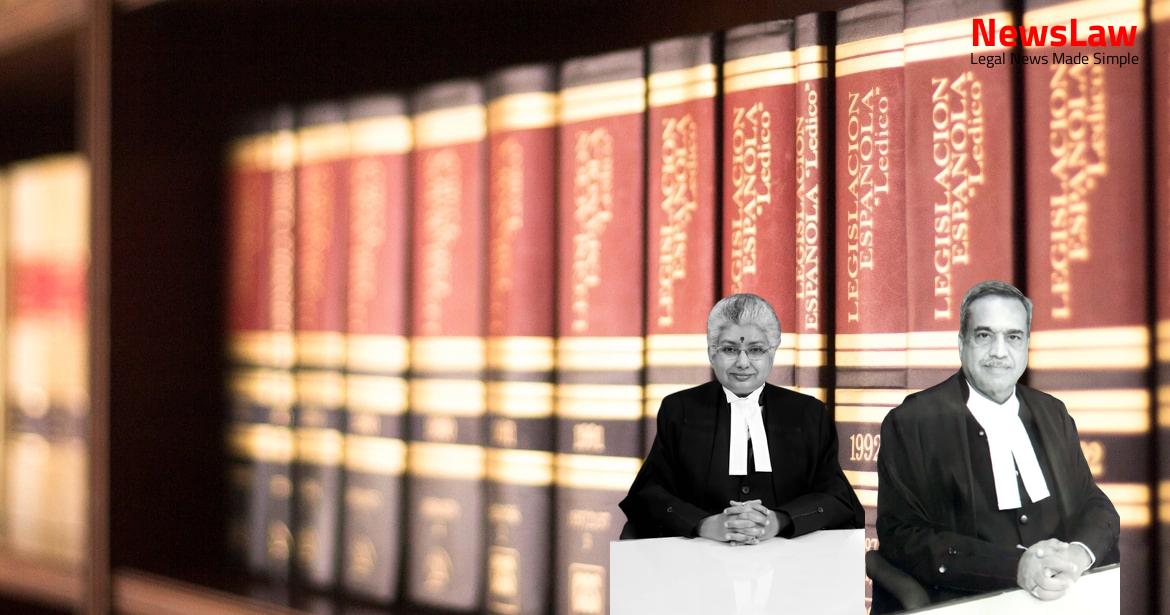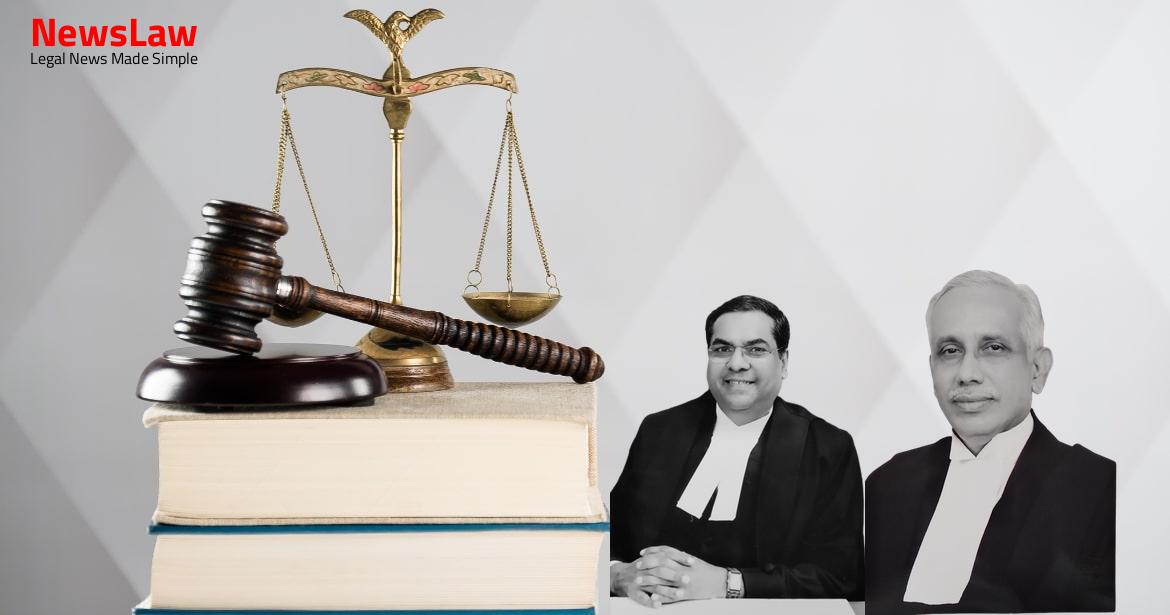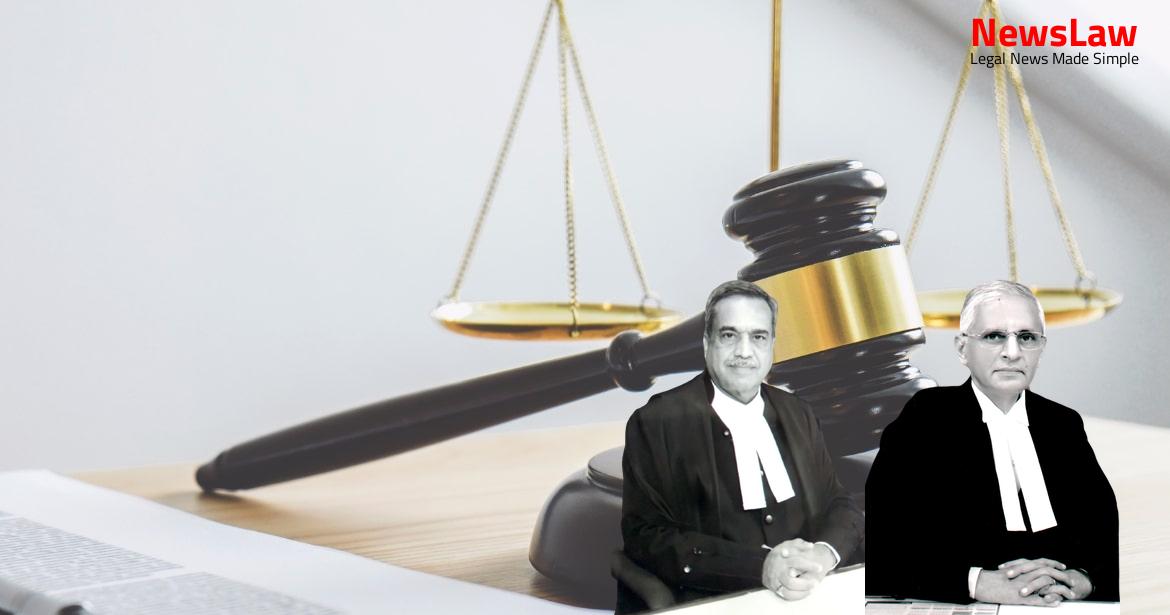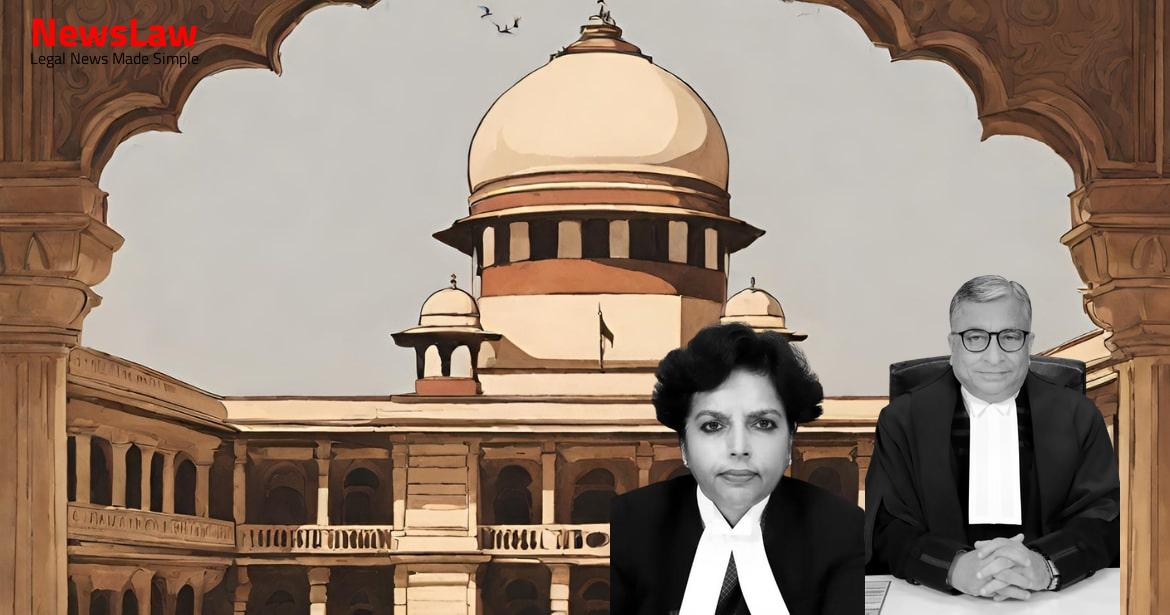Delve into the complexities of setting aside a Lok Adalat’s decree based on a compromise in this legal case summary. The court’s legal analysis and emphasis on providing thorough reasoning for decisions play a pivotal role in ensuring fairness and upholding the rule of law. Stay tuned for a nuanced exploration of the legal aspects of the case.
Facts
- Plaintiff no. 4 filed a Writ Petition before the High Court of Karnataka to set aside the order of the Lok Adalat dated 07 July, 2012.
- Plaintiffs sought partition and separate possession of their shares in the suit schedule properties.
- A compromise petition was filed jointly by the plaintiffs and defendants before the Trial Court, stating the terms of settlement.
- Plaintiff no. 4 refused to sign the order sheet dated 07 July, 2012, realizing it was related to a compromise petition.
- The defendants would enjoy absolute right, title, and interest over the suit schedule properties as per the settlement.
- Defendant nos. 2 to 5 would have the khata, mutation, and record of rights transferred in their names for the properties.
- Plaintiff no. 4 alleged that the compromise was signed due to fraud by the defendants.
- Plaintiffs undertook not to initiate any action regarding their rights over the suit schedule properties.
- Plaintiff no. 1 entered the compromise on behalf of his minor children to protect their shares.
- Plaintiff no. 4 encashed two cheques received as part of the compromise.
- The Lok Adalat passed an order decreeing the suit for partition and separate possession based on the compromise.
- Plaintiff nos. 4-6 filed Writ Petitions before the High Court requesting the quashing of Lok Adalat’s orders from 2012 and 2013.
- High Court did not reference Lok Adalat findings in its judgment.
- High Court remanded the matter to Civil Judge due to fraud allegations against the defendants.
- High Court directed Lok Adalat to investigate fraud allegations within three months.
- Single Judge of the High Court recalled the compromise order from Lok Adalat in April 2015.
- Defendant nos. 2-5 appealed against the High Court’s decision to set aside the compromise order.
- The matter was remanded to the Civil Judge in Bengaluru to proceed without considering the compromise.
Also Read: Ruling on Circumstantial Evidence in Murder Case
Arguments
- Plaintiff nos. 4-6 submitted an affidavit shortly after the Lok Adalat order highlighting the fraud by the defendants.
- The appellants argued that plaintiff nos. 4-6 accepted a sum of Rs. 30,00,000 each as consideration and should not rescind from the compromise terms later.
- The Lok Adalat’s order noted that all parties consented to the terms of the compromise, which was later upheld in another order after rejecting objections raised by plaintiff nos. 4-6.
- Appellants cited a previous case to argue that the appellate court cannot set aside a decree without proper reasoning.
- The High Court was criticized for setting aside the Lok Adalat’s order without requiring plaintiff nos. 4-6 to return the amounts received.
- Plaintiff nos. 4-6 claimed fraud by the defendants and the High Court found merit in their allegations.
- Plaintiff no. 4’s refusal to sign an order sheet indicated realization of fraud by the defendants.
- Plaintiff nos. 5 and 6 were claimed to have been misled into signing the compromise petition and order sheet.
- The High Court’s order setting aside the Lok Adalat’s decision was not deemed necessary by the counsel for respondents.
- The High Court’s reversal of the Lok Adalat’s order was critiqued for lacking proper reasoning.
- Petitioner No 1 denies signing the compromise petition entered into between the parties.
- Petitioners are defendants no. 6 to 9 and claim that fraud was involved in the filing of the compromise petition.
- The petitioners have challenged the order sheet of the Lok Adalath dated 7.7.2012.
- Aggrieved by the rejection of their objections to the compromise petition, 14 petitioners have approached the Court.
- The learned counsel for the petitioners requests the court to set aside the order of compromise passed by the Lok Adalat.
- Counsel for the respondents supports the order passed by the Lok Adalat and urges the dismissal of the writ petitions.
Also Read: Challenging Legal Presumptions in Negotiable Instrument Cases
Analysis
- The consent decree is a creature of an agreement and can be set aside on grounds that invalidate an agreement.
- Plaintiffs 4-6 accepted Rs. 30 lakhs each to relinquish their rights in all suit schedule properties.
- The High Court did not consider the facts of the case adequately in relation to setting aside the Lok Adalat award.
- The court emphasized the need to give reasons while deciding a matter, citing a relevant case.
- Plaintiff nos. 4-6 were rejected on their fraud allegations by the Lok Adalat and did not provide sufficient explanation for their actions.
- It is crucial for a court to exercise caution when setting aside a consent decree or a decree based on a compromise.
- Recalling a compromise requires strong reasons, and plaintiff nos. 4-6 failed to establish fraud by the defendants.
- The order of the Lok Adalat was set aside by the court, and the matter was referred to the Civil Judge for further proceedings.
- The High Court did not provide adequate reasons for setting aside the Lok Adalat’s order based on the compromise.
- Plaintiff nos. 4-6 admitted the contents of the compromise petition before the Lok Adalat, implying their consent to the terms.
- Every award of the Lok Adalat is deemed to be a decree of a civil court or an order of any other court.
- When a compromise or settlement is reached in a Lok Adalat, court fees paid in the case are refunded as per the Court-fees Act, 1870.
- The award made by a Lok Adalat is final and binding on all parties involved in the dispute.
- No appeal can be made to any court against the award given by a Lok Adalat.
- Insistence on recording reasons is crucial for justice to be done and to appear to be done.
- Recording reasons acts as a check against arbitrary exercise of power.
- Reasons ensure that decisions are made on relevant grounds and not influenced by extraneous factors.
- The trend in judicial decision-making favors reasoned decisions based on relevant facts.
- Reasons demonstrate that relevant factors have been objectively considered, strengthening faith in the justice system.
- Transparency and accountability are upheld through the requirement of providing reasons for decisions.
- Transparency reduces errors and subjects decision-makers to broader scrutiny.
- Judgments play a key role in setting legal precedents for the future.
- The finality of an award from a Lok Adalat means no appeal lies against it.
- Reasons aid in the process of judicial review by superior courts.
- Pretense of or inadequate reasons do not constitute a valid decision-making process.
- Reasons supporting decisions should be cogent, clear, and concise.
- In the absence of conclusive proof of fraud, the High Court could not set aside the compromise decree.
- No valid grounds were presented justifying the High Court’s decision to invalidate the Lok Adalat’s order.
- The High Court failed to discuss the findings in the Lok Adalat’s order before overturning it.
- The High Court’s decision contradicts established legal principles that uphold the finality of orders based on compromises or consent between parties.
Also Read: Legal Analysis of Admission Irregularities in Educational Institutions
Decision
- The appeals have been allowed and the parties are directed to bear their respective costs due to their relationship.
- The impugned judgment of the High Court of Karnataka dated 17 April, 2015 has been set aside.
- The order of the Lok Adalat dated 07 July, 2012, recording the compromise between the parties to O.S. No 876 of 2004, has been restored.
Case Title: K. SRINIVASAPPA Vs. M. MALLAMMA (2022 INSC 587)
Case Number: C.A. No.-003486-003488 / 2022



